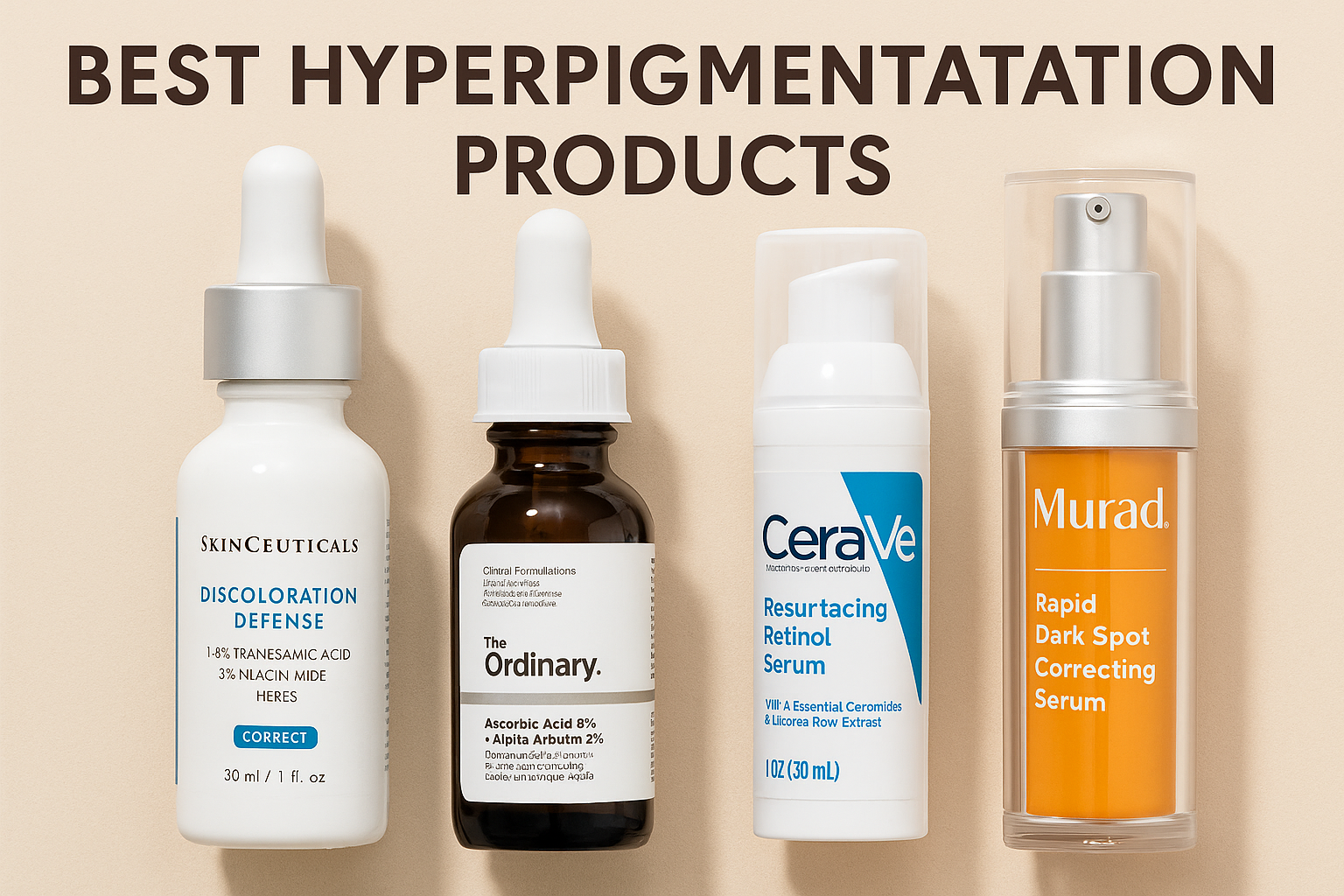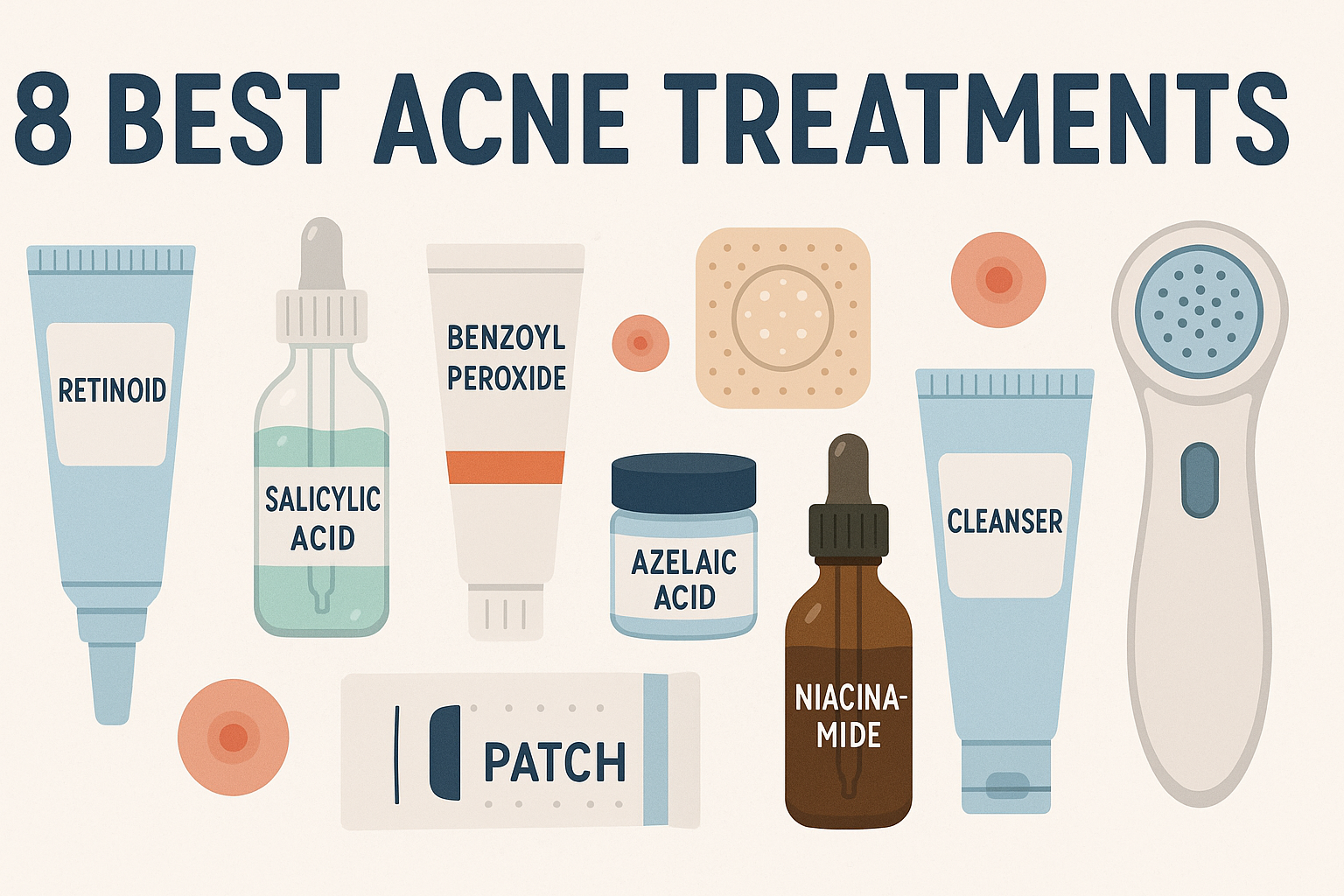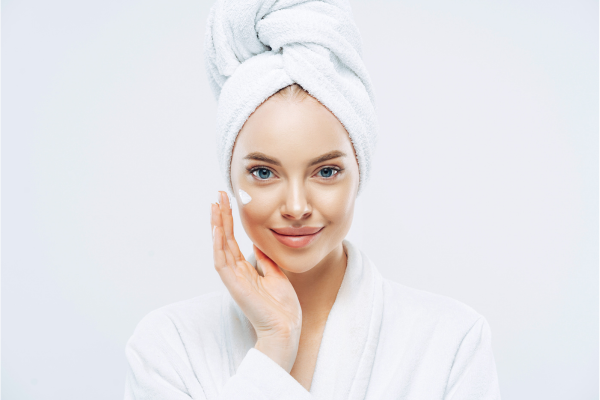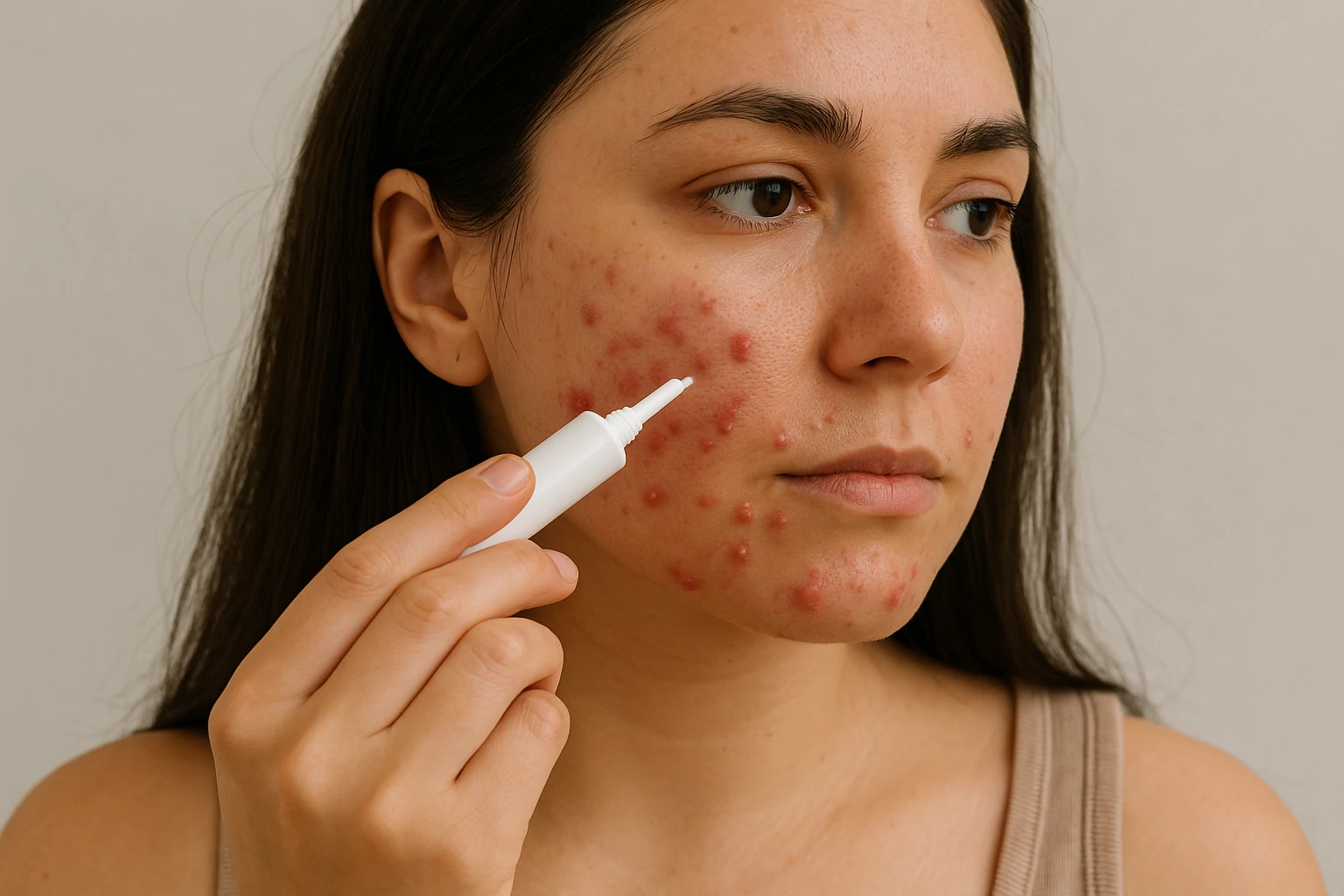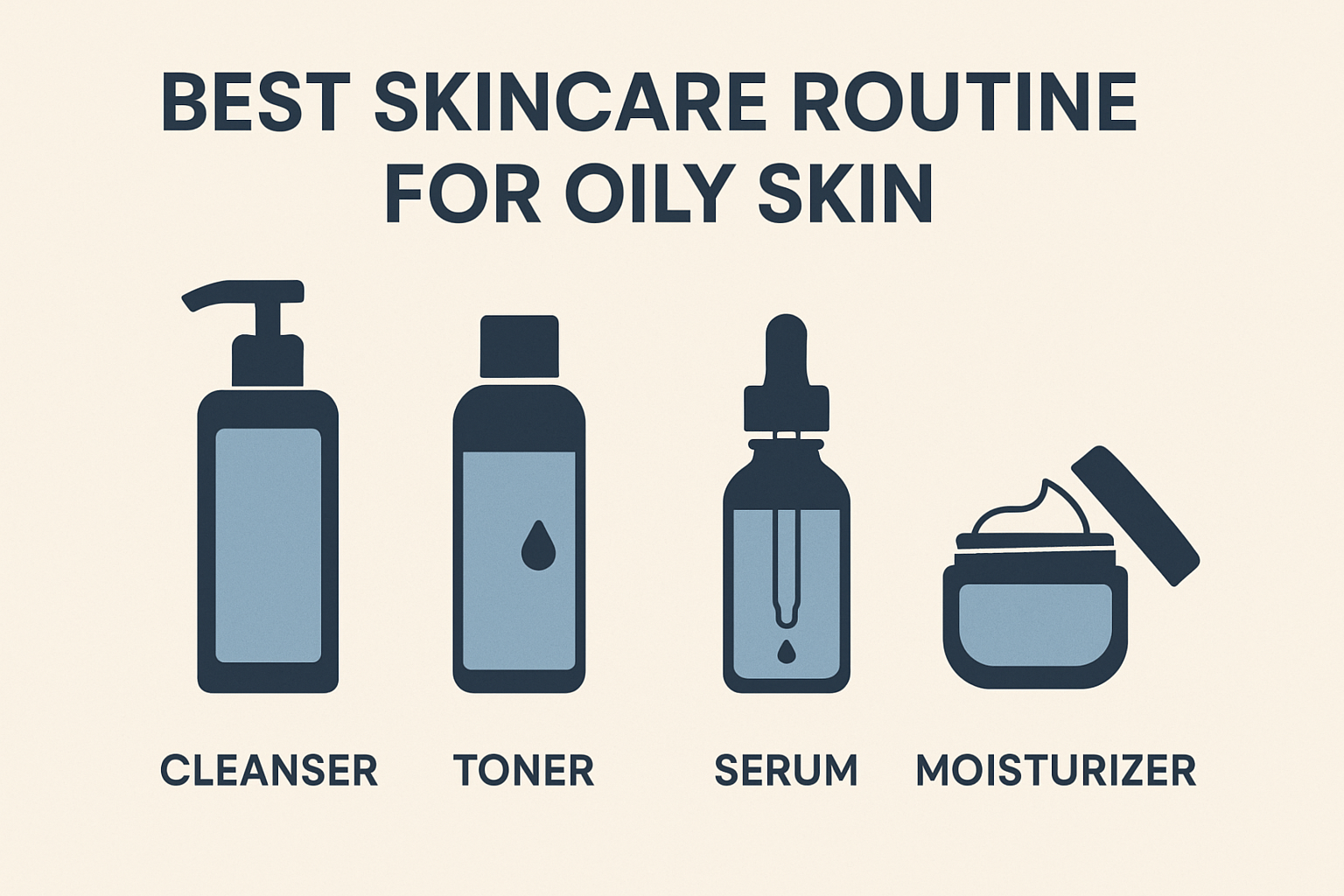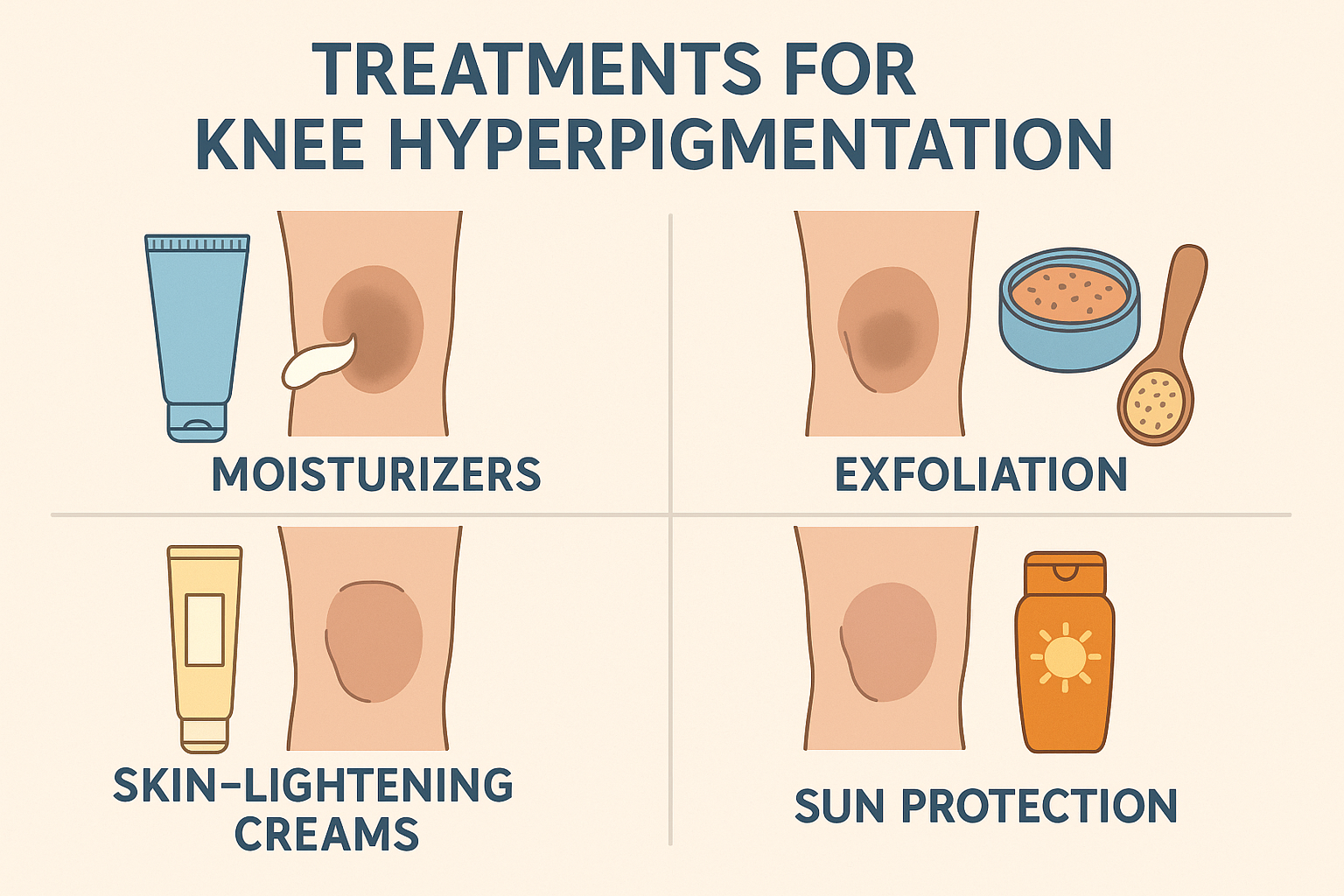Biotin for Skin: Benefits, Side Effects & Uses

Biotin, also known as vitamin B7, has gained popularity in the skincare world for its potential role in promoting healthy hair, nails, and skin. But do you actually need a biotin supplement to see results?
Biotin deficiency can cause symptoms like hair thinning, brittle nails, and skin rashes.[1Patel DP, Swink SM, Castelo-Soccio L. A review of the use of biotin for hair loss. Skin Appendage Disord. 2017;3(3):166-169. doi:10.1159/000462981.] Clinical reports show that individuals with low biotin levels often improve after supplementation. However, for people without a deficiency, adding biotin likely won’t make a noticeable difference.
Dermatologists explain that the body needs biotin in very small amounts, and true deficiency is rare. That’s why taking extra biotin isn’t always necessary—and in some cases, it may lead to unwanted side effects.
Before adding biotin to your daily routine, it’s best to consult a dermatologist. Supplements might help in specific situations, but they aren’t a one-size-fits-all solution for glowing skin.
What Is Biotin and Why Does Your Skin Need It?
Biotin (vitamin B7 or H) is a water-soluble vitamin from the B complex family, essential for converting food into energy. The name “H” comes from the German words Haar (hair) and Haut (skin), hinting at its beauty benefits.
Your body doesn’t store biotin, so you need to get it regularly from food. Eggs, nuts, seeds, fish, meat, and dairy are all great natural sources. Your gut bacteria also produce small amounts of it.
Biotin plays a key role in metabolizing fats and amino acids, which are important for maintaining skin hydration and texture. While biotin deficiency is rare, it can happen during pregnancy or if you have absorption issues.
Even though many people already get enough biotin from their diet, some still take supplements hoping for healthier skin or hair—though the results may vary.
Key Biotin Benefits for Your Skin
Biotin helps support skin health by aiding in fatty acid production and cell metabolism—both essential for keeping your skin hydrated, smooth, and resilient.
In people with biotin deficiency, symptoms like dry rashes, irritation, or flaking skin often improve once levels are corrected. That’s where biotin really shines. But what if your biotin levels are already normal?
According to Dr. Rachel Nazarian, a board-certified dermatologist, there’s limited scientific evidence that extra biotin improves skin in people without a deficiency. While some users report better skin after supplementation, most benefits are anecdotal and not backed by robust research.[2National Institutes of Health Office of Dietary Supplements. Biotin fact sheet for health professionals. Updated March 29, 2021.]
Still, if your skin feels dull or dry and your diet lacks variety, biotin may be worth exploring—with guidance from a professional.
Potential Side Effects and Biotin Risks
While biotin is generally safe, high doses can cause unexpected side effects—especially for acne-prone skin. Some dermatologists warn that excess biotin may reduce vitamin B5 absorption, which your skin needs to prevent breakouts.
If you notice more pimples after starting a biotin supplement, it might be a red flag. Consider stopping or switching to a balanced multivitamin.
Another concern: biotin can interfere with lab test results, such as thyroid function or heart attack markers (troponin).[3U.S. Food and Drug Administration. The FDA warns that biotin may interfere with lab tests: FDA safety communication. Updated November 4, 2019.] Always inform your healthcare provider if you’re taking it.
Other rare side effects include mild digestive issues (like bloating or nausea) and drops in blood sugar levels, which could be risky for people with diabetes.
Biotin may seem harmless, but mindful use is key to avoiding problems.
How to Use It
For most people, a balanced diet already provides enough biotin. Foods like eggs, salmon, almonds, and whole grains help maintain healthy skin without needing extra pills.
That said, if you’re curious about trying a biotin supplement for skin support, it’s generally safe—just don’t overdo it. Start with a low dose, monitor how your skin reacts, and always get medical advice beforehand.
Dr. Marisa Garshick, a board-certified dermatologist, advises that while biotin can help in certain cases, it’s not a guaranteed fix for skin problems. Supplements should only complement, not replace, a healthy lifestyle.
To see real changes, pair biotin with proper skincare, hydration, and a nutrient-rich diet. That’s where the glow truly begins.
Do Biotin Supplements Actually Work?
Biotin supplements are often marketed as a solution for healthier skin, hair, and nails—but do they really deliver? The truth is, their effectiveness is only clearly proven in people with biotin deficiency. In those rare cases, supplementation can help reduce hair breakage, brittle nails, and skin rashes.
However, for common concerns like acne, experts say the scientific support is very limited. With many proven acne treatments available, biotin isn’t recommended as a primary solution.
That said, biotin is generally safe. It’s water-soluble, so excess amounts are flushed out through urine. Side effects like mild bloating or nausea are rare, and overdosing is unlikely.
Still, results vary. Some users report clearer skin, while others experience breakouts—possibly due to reduced absorption of vitamin B5. For best results, focus on getting biotin naturally from eggs, avocados, and nuts, which also provide healthy fats that benefit your skin.
Topical vs. Oral Biotin: Which One Works Better?
Biotin comes in two main forms: oral supplements and topical products like shampoos and creams. While topical biotin may help moisturize the skin and strengthen hair, its absorption through the skin is limited.
Some users claim visible improvements in hair thickness and skin texture after regular use of biotin-infused products. However, clinical evidence is still lacking, and results can vary depending on your skin type and routine.
Oral biotin is considered more effective for whole-body benefits. Since it works from the inside out, it’s better suited for improving metabolism, cell repair, and overall skin health—especially if you’re not getting enough biotin from your diet.
Both forms are generally safe, but if you’re looking for noticeable changes, oral supplements may offer more impact—provided they fit your needs and lifestyle.
Can Biotin Help With Acne or Skin Conditions?
Although biotin is known for boosting hair and nail health, its link to acne treatment remains unclear. There’s little scientific proof that biotin can directly improve acne or other skin issues.
According to dermatologists, acne is a complex condition influenced by hormones, oil production, and inflammation—factors that biotin doesn’t address directly. In fact, high doses of biotin might worsen acne in some people by interfering with vitamin B5 absorption, which plays a key role in skin balance and inflammation control.
However, in rare cases of biotin deficiency, supplementation might help relieve dry, flaky, or irritated skin.
Bottom line: biotin shouldn’t be your go-to treatment for acne or chronic skin problems unless recommended by a doctor. Stick with proven skincare routines, and use biotin only when there’s a real need.
Recommended Dosage and How to Take Biotin
Your body only needs a small amount of biotin each day—about 30 micrograms for adults. Most people already get enough from everyday foods like eggs, nuts, fish, and leafy greens.
Commercial supplements, though, can contain anywhere from 1,000 to 10,000 micrograms per capsule. While biotin is safe in high doses for most people, taking mega-doses without a medical reason isn’t recommended.
To boost absorption and reduce the chance of digestive discomfort, take your supplement with food—preferably at the same time each day.
Before starting biotin, talk to a healthcare provider, especially if you’re taking medications or managing a health condition. This helps ensure you’re taking the right dose for your body’s actual needs.
Best Natural Sources of Biotin for Glowing Skin
Getting biotin from real food is the safest and most effective way to support your skin’s health. Whole foods not only provide biotin but also offer extra nutrients your skin loves.
Top natural sources of biotin include:
- Cooked eggs (especially yolks): Rich in biotin and safe when fully cooked.
- Fatty fish like salmon and tuna: Great for biotin and skin-loving omega-3s.
- Nuts and seeds (almonds, peanuts, sunflower seeds): Help maintain skin elasticity.
- Leafy greens like spinach and broccoli: Offer biotin plus antioxidants.
- Liver (beef or chicken): One of the highest biotin sources, but eat in moderation.
Adding these foods to your diet can naturally support skin repair, hydration, and protection—without the risks of over-supplementing.
Final Thoughts
Biotin can be a helpful nutrient for skin, hair, and nails—especially if you have a deficiency. But for most people with a balanced diet, adding high-dose biotin supplements may not bring dramatic skin improvements. While it’s generally safe and well-tolerated, the evidence for its benefits on acne and overall skin health is still limited.
If you’re curious about trying biotin, start by focusing on natural sources like eggs, nuts, fish, and leafy greens. These foods not only provide biotin but also offer other nutrients that support your skin from within.
Remember, glowing skin comes from a combination of good skincare habits, a healthy lifestyle, and proper nutrition. Always consult a healthcare professional before adding new supplements to your routine—especially if you’re dealing with skin issues or taking other medications.
In short, biotin might support your skin—but it’s not a magic fix. Listen to your body, do your research, and choose what works best for your unique needs.






 Acne
Acne Anti-Aging
Anti-Aging Business
Business Digital Marketing
Digital Marketing Economics
Economics Exfoliation
Exfoliation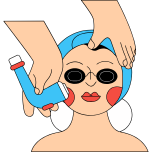 Hair Removal
Hair Removal Movies
Movies Personal Finance
Personal Finance Websites
Websites
